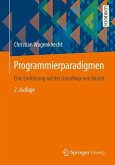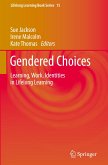This book explores how the changing nature of work intersects with and influences young people's views on their future. As an increasingly precarious service sector overtakes traditional industrial work, vocational education and training (VET) is held up as a panacea for poverty alleviation, youth unemployment and economic growth. However, the views of young people in VET themselves concerning their own work and aspirations have largely been ignored. Based on interviews and focus groups conducted with over 250 young people in VET in Romania, this book examines the types of subjectivities that are generated in the processes by which they try to make sense of future and the meanings of work. In doing so, the author identifies three ideological layers that frame their views: arguing that while the young people interviewed hold 'conventional' aspirations for stability and predictability; they were visibly influenced by neoliberal beliefs in agency, experimentation and short termism. Ultimately, a layer of low expectations crystallises unvoiced concerns over a troubling future. In highlighting young people's voices, this pioneering book calls for a recalibration of the emphasis on VET in Romania. It will appeal to students and scholars of youth studies, the sociology of work, vocational education and training and European studies.








